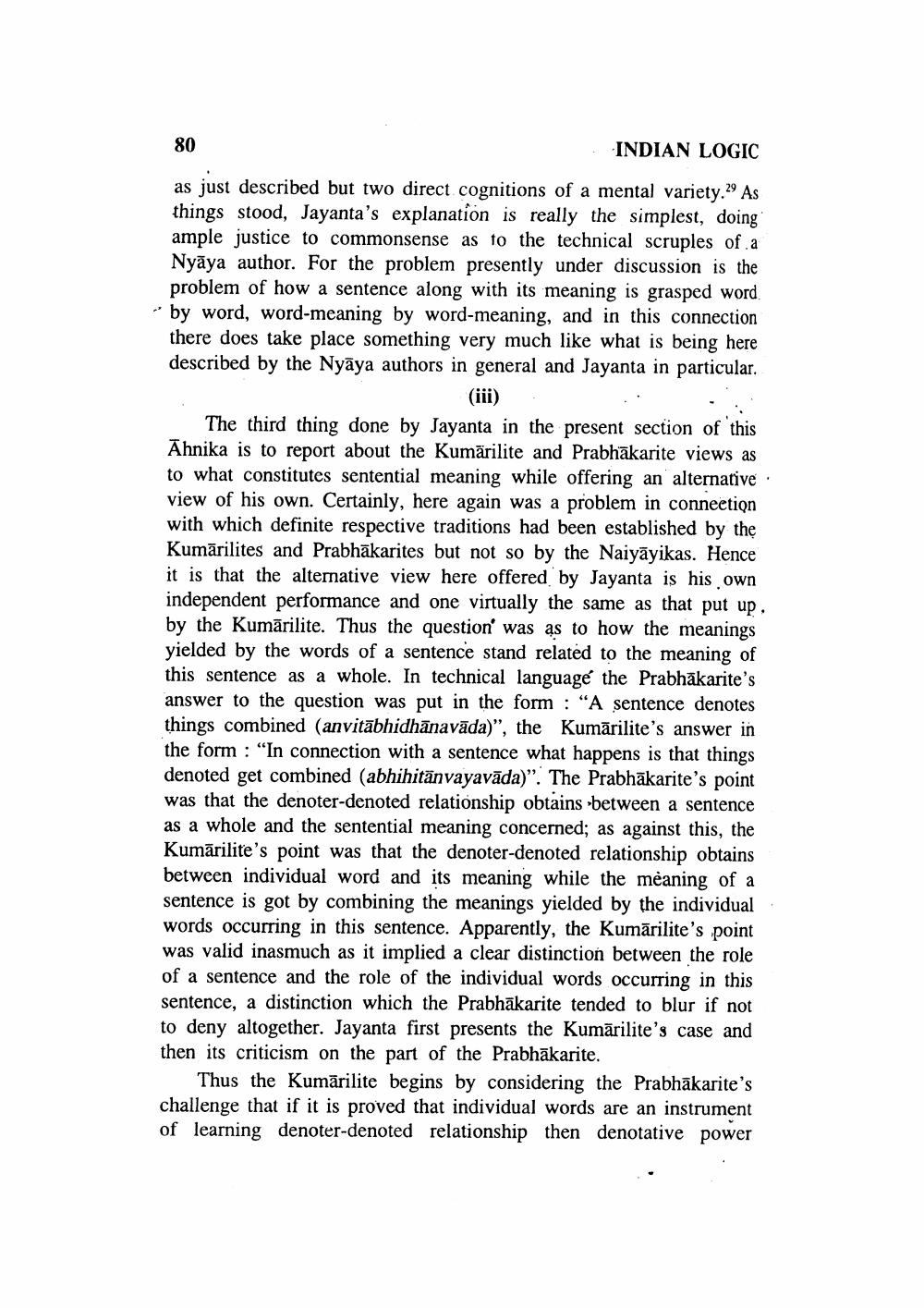________________
80
INDIAN LOGIC
as just described but two direct cognitions of a mental variety.29 As things stood, Jayanta's explanation is really the simplest, doing ample justice to commonsense as to the technical scruples of a Nyāya author. For the problem presently under discussion is the problem of how a sentence along with its meaning is grasped word. by word, word-meaning by word-meaning, and in this connection there does take place something very much like what is being here described by the Nyāya authors in general and Jayanta in particular.
The third thing done by Jayanta in the present section of this Ahnika is to report about the Kumärilite and Prabhākarite views as to what constitutes sentential meaning while offering an alternative view of his own. Certainly, here again was a problem in connection with which definite respective traditions had been established by the Kumārilites and Prabhākarites but not so by the Naiyāyikas. Hence it is that the alternative view here offered by Jayanta is his own independent performance and one virtually the same as that put up. by the Kumārilite. Thus the question was as to how the meanings yielded by the words of a sentence stand related to the meaning of this sentence as a whole. In technical language the Prabhākarite's answer to the question was put in the form : “A sentence denotes things combined (anvitābhidhānavāda)", the Kumārilite's answer in the form : “In connection with a sentence what happens is that things denoted get combined (abhihitānvayavāda)". The Prabhākarite's point was that the denoter-denoted relationship obtains between a sentence as a whole and the sentential meaning concerned; as against this, the Kumārilite's point was that the denoter-denoted relationship obtains between individual word and its meaning while the meaning of a sentence is got by combining the meanings yielded by the individual words occurring in this sentence. Apparently, the Kumārilite's point was valid inasmuch as it implied a clear distinction between the role of a sentence and the role of the individual words occurring in this sentence, a distinction which the Prabhākarite tended to blur if not to deny altogether. Jayanta first presents the Kumārilite's case and then its criticism on the part of the Prabhākarite.
Thus the Kumārilite begins by considering the Prabhākarite's challenge that if it is proved that individual words are an instrument of learning denoter-denoted relationship then denotative power




